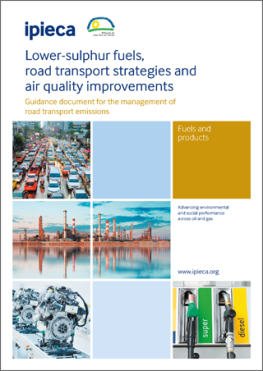Today, Ipieca, publishes its updated guidance document: Lower-sulphur fuels, road transport strategies and air quality improvements. Together with a standalone executive summary, these documents are published jointly with the UNEP Partnership for Clean Fuels and Vehicles (PCFV) and give guidance for the management of road transport emissions. 
The guidance discusses the characteristics of effective air quality management frameworks and recommends a holistic approach to reducing mobile source emissions by treating the vehicle, the fuels and the infrastructure as an integrated system. This approach allows countries to develop strategies to maximize both economic and social benefits, including those associated with clean air and protection of public health.
An integrated effort by government and industry is needed to address air quality cost-effectively. Suggested measures include:
- technology-neutral, science-based vehicle emissions and fuel standards;
- import restrictions on used vehicles; vehicle scrappage;
- robust inspection and maintenance programmes;
- and legal authority for ensuring compliance.
The guidance also sets out a structured approach for countries to consider when evaluating options to reduce fuel sulphur such as:
- set air quality policy goals;
- develop a scientifically-based targeted air quality management framework;
- address mobile source emissions together;
- understand the evolution of vehicle technology and emission standards, especially for imports;
- and consider fuel availability and supply.



